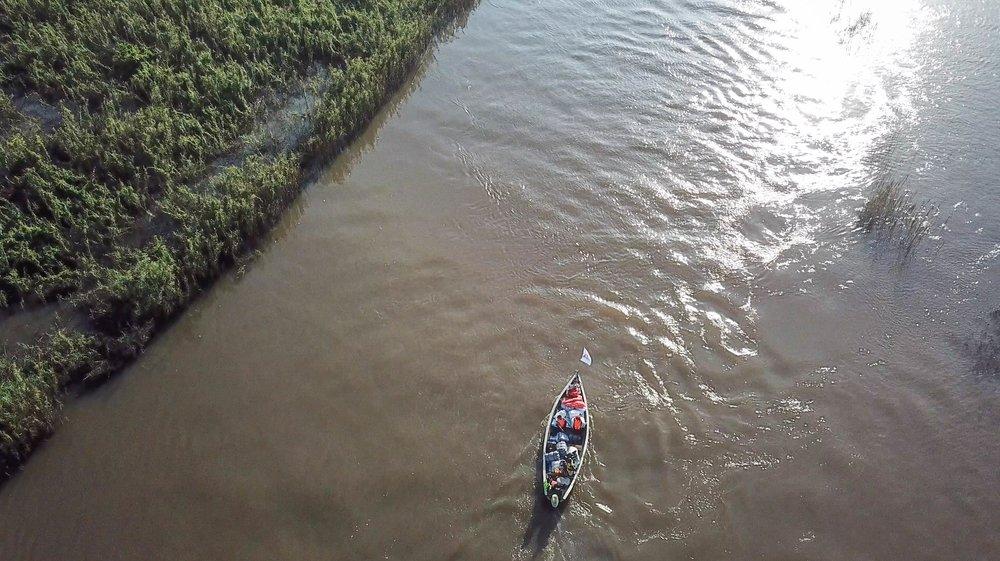As a second tropical storm hits Mozambique, rural communities affected by the initial cyclone still face many humanitarian and medical challenges. MSF emergency coordinator, Esperanza Santos, explains MSF´s response to the situation in Dondo district, one of the areas outside Beira most affected by Cyclone Idai.
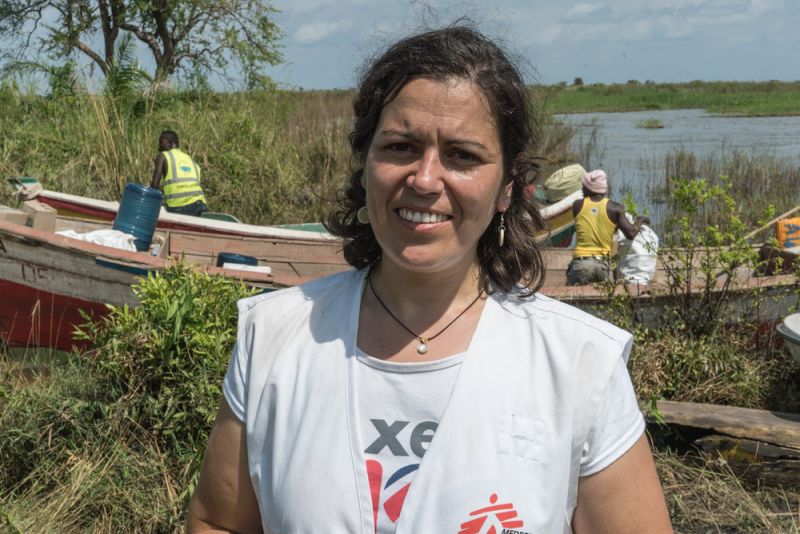
“Soon after heavy rain and flooding destroyed much of Beira, we identified Dondo district, in Mozambique´s Sofala province, as one of the areas most affected by the flooding. In both Dondo city and in the outlying countryside, we found many people in dire need of support. The roofs of their houses had been ripped off by the wind and the rain, leaving them without shelter; their possessions and household belongings had been swept away; health services had been disrupted, and at that point, international support was yet to arrive.
Initially, as cholera outbreaks were announced in flood-affected areas, we supported the Mozambique Ministry of Health to operate cholera treatment units in Dondo, Mafambesi and Mutua. We supported the treatment of over cholera 740 cases, including via the operation of five oral rehydration points and an ambulance referral service, implemented health promotion activities, and supported the Mozambique authorities to conduct a cholera vaccination campaign to prevent further cases.
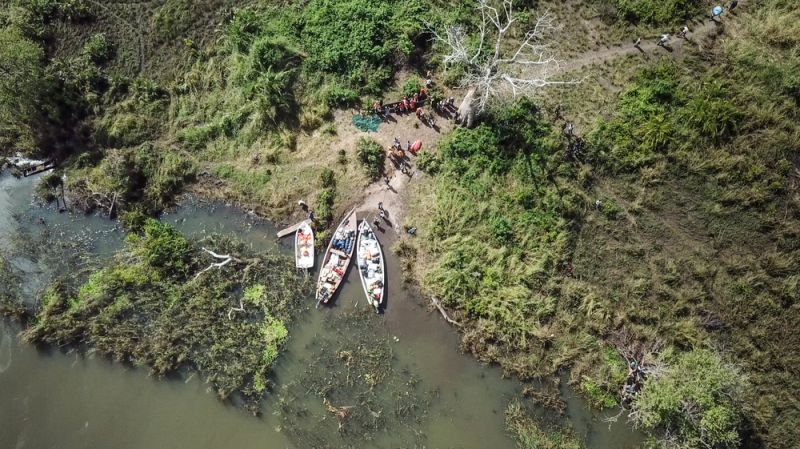
However, we soon turned our attention to communities in Chibuabuabua, Tundane, and Savane, three remote areas badly affected by the storm which also had particularly poor access to medical care. When we arrived, people were already beginning to rebuild their homes and lives in the best way they could with the limited resources available to them. To help prevent poor living conditions leading to an increase in disease - as often happens in this kind of context - we distributed 7,000 kits containing basic survival essentials, benefiting around 30,000 people. These items include blankets to sleep on and plastic sheeting to place over wooden structures, as a form of roofing that will provide protection from the elements. The kits also contain personal hygiene items; mosquito nets to prevent malaria; jerry cans to collect and store water; and certeza, a sodium hypochlorite solution to disinfect water to make it suitable for consumption and reduce the spread of waterborne diseases.
Road, river, and air: delivering supplies by whatever means required
Chibuabuabua, Tundane, and Savane extend across a combined area of 1,500km2. The population in these areas of Dondo is very dispersed - people are not necessarily living together in villages. This made it harder to identify the number of families in need. The remoteness of the areas we were trying to reach, plus the damage caused by the cyclone, also complicated the distribution of the kits.
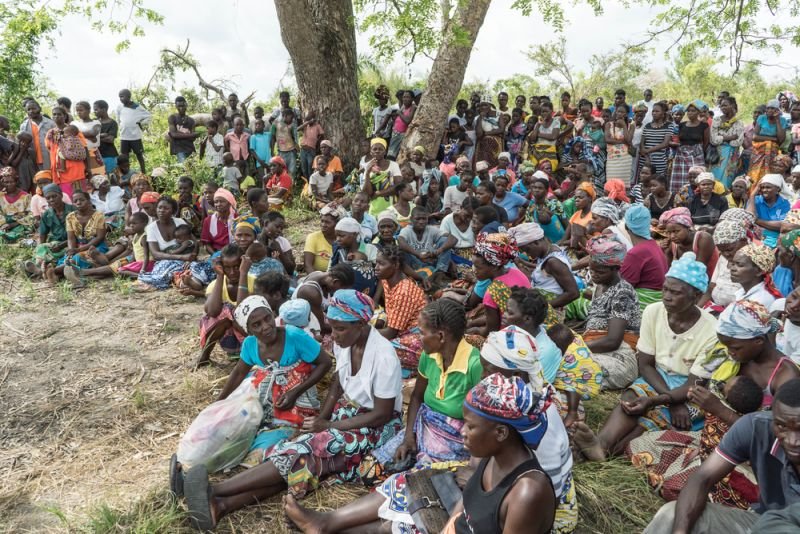
Sometimes, our teams travelled three hours by motorbike or tractor, but on many occasions, the roads were completely inaccessible due to massive surface flooding or blocked by trees blown down in the storm. In these instances, we had to use a helicopter to reach people. At one point in the distribution, we had five teams giving out around 1,200 kits per day - using three boats, six tractors, and four trucks. We´d transport supplies by truck to the edge of the river and then use boats to take the items across, only to get caught up in grass and reeds in the water. When we finally got to the other side, access was often so difficult that people still had to walk for two to four hours to reach our distribution spots and to collect the supplies. One woman I spoke to in Tundane walked for an hour-and-a-half on crutches to receive our support.
Supporting a return to health: restoring interrupted medical services
Delivery tables, medical instruments, dressings, and drugs - across Dondo, rains and floodwater spoiled or swept away equipment and supplies in many local health centres. Heavy winds also caused structural damage to medical facilities, partially destroying 16 health structures across the district, and leaving the health system unable to function properly.
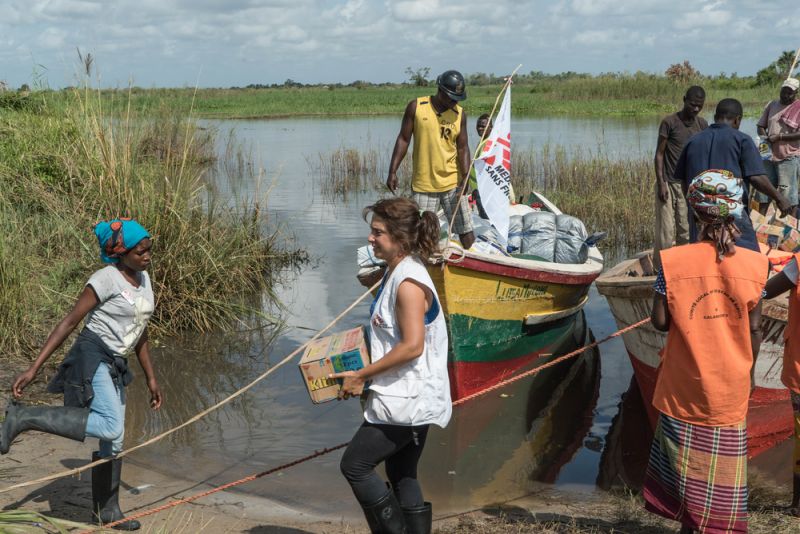
In the initial aftermath of the cyclone, we set up tents outside damaged Ministry of Health structures and provided them with necessary materials so they could continue offering emergency and maternity care. However, because so many people live far from health facilities, now we´re working with the Ministry of Health to operate mobile clinics in 20 remote locations across Chibuabuabua, Tundane, and Savane. This allows us to reach isolated communities who would otherwise have very limited access to medical care. We´re focusing on malaria, diarrohea, and respiratory infections, the three most-commonly observed conditions, as well as on vaccinations to prevent outbreaks of communicable diseases such as measles.
To help return the health system to normal and resume proper services for the longer-term, we´re also currently reconstructing the roof of three health facilities in Chibuabuabua, Tundane, and Savane, and are conducting activities to ensure that the centres have water, sanitation, and infection control facilities in place.
Find out more about MSF's work in Mozambique
